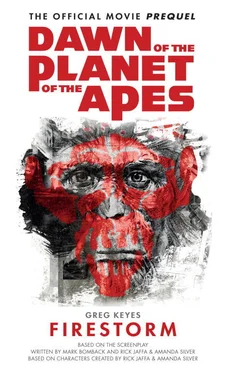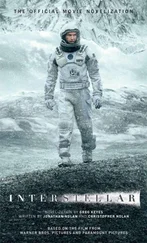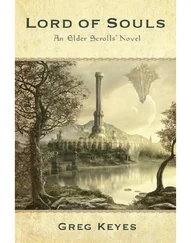“How can people behave like this?” Clancy said.
“Welcome to my world,” Malakai said.
“I heard you were in some of that business in Rwanda,” Corbin said. “You must have seen some pretty nasty things there.”
“I suppose,” Malakai said, regretting he had said anything.
“I think if they’re scared and angry enough, people will do almost anything,” Corbin said.
“But this… This is San Fra—” Clancy began, and then she stopped abruptly.
“San Francisco,” Malakai continued for her. “San Francisco, in the USA, as opposed to some third-world hellhole where people eat gorillas.”
Corbin and the rest laughed.
Her face, pink from the industrial scrubbing, darkened.
“I wasn’t going to say that,” she said. “Some pretty awful things have happened in this country—slavery, genocide, riots, mass murders. It’s just… I was there a week ago, and everything was normal. How did it go from that to this so quickly?”
“Because in that less than a week, a total of more than 250,000 people have dropped dead of a plague that kills everyone that gets it,” Flores said. “And now they’re calling it the ‘Simian Flu’ because those monkeys out there are the ones that gave it to us.”
Clancy frowned.
“We were briefed after talking to the mayor,” she said. “My impression is that the virus was developed by Gen Sys.”
“Yeah. And spread by monkeys.”
“From what I’ve been told, the prime vector was probably a man that worked at the lab, not an ape.”
“Why is it called the Simian Flu, then?” Flores shot back.
“Just…” she sighed. “I’ve watched more of this than I can take. Is there a computer or a tablet or something around here I can use?”
“Right over there,” Corbin said.
Malakai continued watching, however. It wasn’t just San Francisco that was collapsing. Paris had descended into a similar purgatory. Mumbai had a death toll at almost half a million. Most major cities around the world had some share in the pandemic. Airlines were grounded over much of the globe, train and bus lines were shut down. Food was vanishing from grocery shelves and warehouses, and wasn’t being replaced due to the transportation stoppage. Healthcare systems were so swamped with victims of the Simian Flu that the death toll for every other malady had skyrocketed.
And it wasn’t just the human race suffering. All over the country—the world—people were breaking into zoos, killing apes, monkeys, tarsiers, sloths—anything that looked faintly simian, apparently because the actual facts that gave rise to the term “Simian Flu” hadn’t traveled with the term.
He glanced over at Corbin, now on his third beer. If the apes really were carriers, then Corbin was the most likely of them to have been infected, although all of them had been near ape corpses. He had touched one.
Well, they would know in a day or two.
Across the room, Clancy abruptly started sobbing, and a moment later she ran from the room.
* * *
They had been watching American cable television, so there was next to nothing concerning the continent of Africa, much less his homeland, but later that night he went online to learn that fresh fighting had broken out in North and South Kivu, again shattering the region along tribal and ethnic divisions. He wondered how long it would be before the death toll from starvation, trauma, neglect, and lack of general healthcare would surpass that of the disease itself.
The 133 retrovirus was a hard, cold killer, but the human race was giving it a run for its money.
Dreyfus sat in the mayor’s chair for the first time, and reflected that nothing was ever what you expected.
He had believed he would one day sit here. He had worked for it. But the chair seemed somehow too big at the moment, and the warm hardwood walls too close. He thought of all of those who had been here before him, one of whom had lost his life in this very office. He wondered how he would be remembered, or even if he would be remembered.
“Okay,” he told Patel. “Bring him in.”
Patel opened the door, and a moment later Trumann Phillips walked in. Dreyfus did not offer him a seat. He preferred to leave him standing.
“Let’s cut through all the bullshit,” Dreyfus said. “Why did House bring you in?”
Phillips didn’t blink.
“I would prefer to answer that question with an attorney present,” he replied.
“Are you goddamn kidding me?” Dreyfus exploded. “Where do you think you are? The worst thing I could do to you right now is put you on the street. There’s a mob out there screaming for your blood. And if they don’t kill you, your goddamn Simian Flu will.”
“As you must know,” Phillips said, “I had no hand in the actual creation of the virus. I don’t even work for Gen Sys.”
“No, you work for Polytechnic Solutions, which owns Gen Sys. You’re their cleanup man.” He leaned forward and studied a report on his desk. “Yes, I’ve done some research on you. You have a sterling record for ‘fixing’ things. Kuantan, Malaysia, 1997, you ‘fixed’ a toxic chemical dump that was poisoning the drinking water of thousands of people. Except ten years later the dump was still there, and the people had mysteriously moved elsewhere, or just—hey!—vanished.
“Or that thing in Bangladesh. The alleged malfeasance in Iraq by Anvil, all of the witnesses unfortunately slain in a roadside bomb attack. You were involved in all of that, and I’m sure you know I could go on.”
“And as you must know,” Phillips said, “I’ve never been indicted for anything. Because I’m not guilty of anything.”
“No, you’re just the kind of guy who gets away with things. Until now. Now that we know what to look for, we’ve got connections between you and House going back twenty years, when he was an assistant DA. You’ve been fattening him up for a long time, and it finally came time for you to slaughter the pig. You convinced him to let you handle the situation. To keep everything quiet.”
“I—” Phillips began, but Dreyfus held up a hand to stop him.
“Just answer the question,” he said. “Why were you brought in?”
Phillips hesitated for a moment.
“You know why,” he said.
“I want to hear it from you.”
“We needed to contain the situation,” Philips finally said. “Our first priority was to keep secret the fact that Gen Sys created the virus. At that point we had no way of knowing how bad it was going to turn out to be. The hope was that by the time anyone found out, if they ever found out, we would have worked out a cure. And for that we needed apes infected with the virus.”
“Why?”
“Because it doesn’t kill them. We need to know why.”
“Why not infect another captive ape?”
“It’s not that simple,” Phillips said. “In humans, the virus mutates. Apes can’t get it from us. And we don’t have access to any of the original serum.”
“So you’ve really been trying to catch apes.”
“And keep the particulars… insulated. My people haven’t been allowed contact with anyone outside. At least not until you put them at their liberty.”
“You found them, I understand. Why didn’t you follow through?”
“Everyone was paying too much attention to us. There were protesters outside our perimeter. We shut down, hoping things would go quiet.”
“Can you still do it?”
The change that came over Phillips’s face at that moment was subtle, but Dreyfus saw it. The man was just realizing that this conversation wasn’t about what he had thought it was.
“I’m sure we can,” he said. “With a little help.”
Читать дальше












